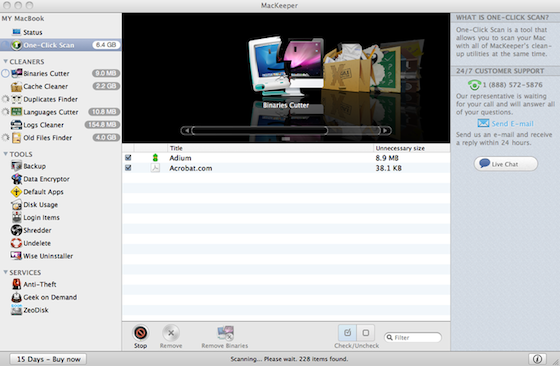

The bot parses and distinguishes a number of configuration parameters. The embedded config parameters are encoded with a XOR key: The bot keeps its execution parameters in a configuration (config) section. The bot collects system information such as: Set execution permissions and run downloaded files.Open a pipe stream and execute shell commands.The embedded executable is a bot that allows remote access.
MACKEEPER KEEPS POPPING UP UPDATE
The dropper will create a plist and update the LaunchAgents in order to enable an auto-start for the created executable (" RunAtLoad"). When run, it will dump an embedded executable and then launch it. Once the password is specified, the malware will be downloaded, saved as /Users/Shared/dufh, and executed.Īt this stage, the executable file dufh is a dropper. "Your computer has malware that needs to be removed"Īs a result, once the unsuspecting user click the malicious link, the following dialog box will pop up: The launcher path for this command is specified within the as "/bin/sh" (a symlink to the currently configured system shell), and the prompt message displayed to the user is: Where, once decoded, contains the following commands interpreted and executed by MacKeeper, using system shell: 'com-zeobit-command:///i/ZBAppController/performActionWithHelperTask: The webpage hosted by the attackers in this particular case has the following format: The actual reason is so that the malware could be executed with the admin rights. Once clicked, the users running MacKeeper will be presented with a dialog that suggests they are infected with malware, prompting them for a password to remove this. The attack this post discusses can be carried out via a phishing email that contains malicious URL. Since the proof-of-concept was published, it took just days for the first instances to be seen in the wild. The first reports on this vulnerability suggested that no malicious MacKeeper URLs had been spotted in the wild yet.
MACKEEPER KEEPS POPPING UP SOFTWARE
Last month a new advisory was published on a vulnerability discovered in MacKeeper, a controversial software created by Ukrainian company ZeoBIT, now owned by Kromtech Alliance Corp.Īs discovered by Braden Thomas, the flaw in MacKeeper's URL handler implementation allows arbitrary remote code execution when a user visits a specially crafted webpage.

Written by Sergei Shevchenko, Cyber Research


 0 kommentar(er)
0 kommentar(er)
